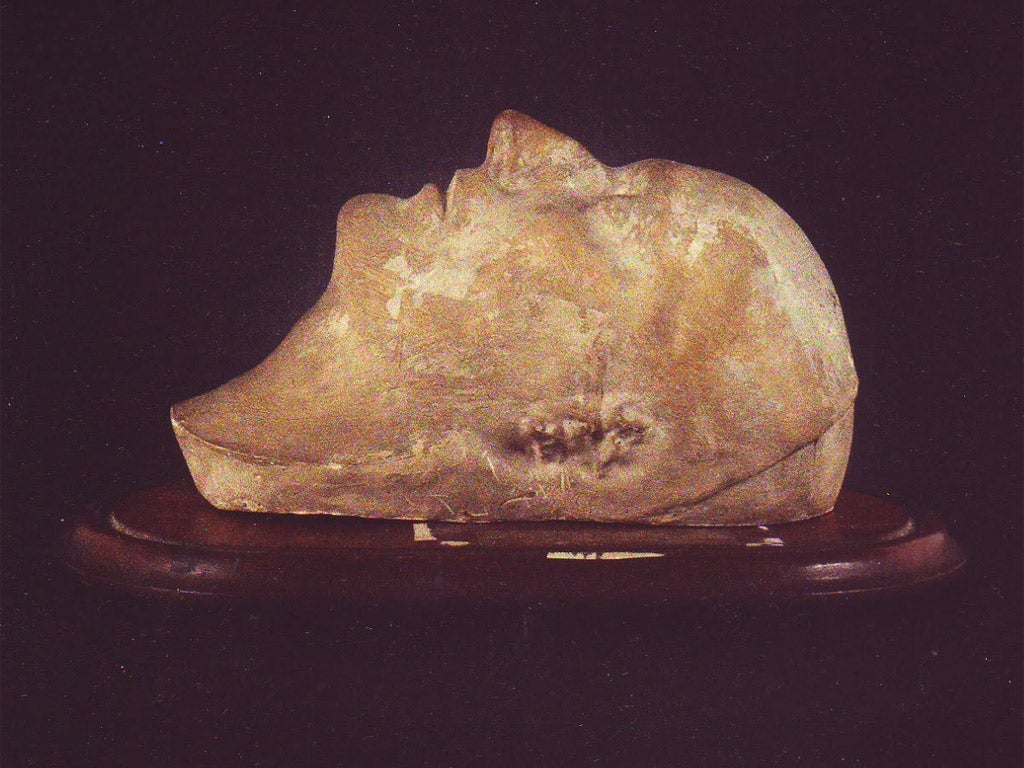Block on rare Napoleon death mask leaving UK
The plaster mask was sold for £175,000 to an overseas buyer earlier this year by a descendant of the brother of its original owner

An export ban has been placed on a rare Napoleon Bonaparte “death mask” in the hope that a British buyer can be found for the “macabre” object.
The plaster mask was sold for £175,000 to an overseas buyer earlier this year by a descendant of the brother of its original owner, Reverend Richard Boys. He was a chaplain on the Atlantic island of St Helena in May 1821 when the exiled French emperor died.
Leslie Webster, a member of a government committee which advised Ed Vaizey, the culture minister, about the mask, said it has “a power and immediacy that raises the hairs on the back of the neck”.
Ms Webster added: “The sense that you are in the presence of Napoleon is very strong. There are many grandiose portraits, as well as contemporary British caricatures of this great and controversial figure, but this deathbed image speaks far more directly to us – here we see the man himself, and sense his charisma, even in death.”
A British buyer has until 14 January next year to match the sale price or the export will be allowed. This period could be extended.
There are other death masks of Napoleon, but most are believed to be later copies. This was one of two given to Rev Boys shortly after the death of the emperor who conquered much of Europe but was finally defeated by a coalition of mainly British, Dutch and Prussian troops at the Battle of Waterloo in 1815.
The object was almost certainly taken by Francis Burton, a British surgeon in attendance at his death.
All but one of the other masks are in national collections in France or in Corsica.
Mr Vaizey noted that with the 200th anniversary of Waterloo approaching there is still a “huge fascination” with Napoleon in the UK.
“This is perhaps one of the most unusual objects I’ve ever come across, both fascinating and somewhat macabre, but I believe it should remain here, and hope a UK buyer steps forward to help ensure that happens,” he said.
At the time of the sale by auctioneers Bonhams in June, the owner of the mask, Andrew Boys, said he had been “surprised” to learn he had inherited the mask at a family funeral.
The cast is inscribed “Rev Mr Boys” on the inside and comes with a note by Boys reading: “This Cast was taken from the Face of Napoleon Buonaparte as he lay dead at Longwood St. Helena 7th May 1821 which I do hereby certify/ R. Boys M.A. Sen.r Chaplain/ By Rubidge.”
Rev Boys played chess with Napoleon and brought several mementos of him when he returned to England, according to Bonhams. The death mask is the latest major cultural artefact to be subject to a government export ban.
The export of two “vitally important” paintings by George Stubbs – the first depictions of a kangaroo and a dingo in Western art – was averted when a wealthy shipping magnate made a £1.5m donation to the National Maritime Museum so it could buy them.
In September, a ring owned by Jane Austen – which had been sold to US singer Kelly Clarkson – was bought by the Jane Austen’s House Museum in Chawton, Hampshire, after an export ban. The museum launched a fundraising campaign to get more than £150,000 to buy it.
Join our commenting forum
Join thought-provoking conversations, follow other Independent readers and see their replies
Comments
Bookmark popover
Removed from bookmarks